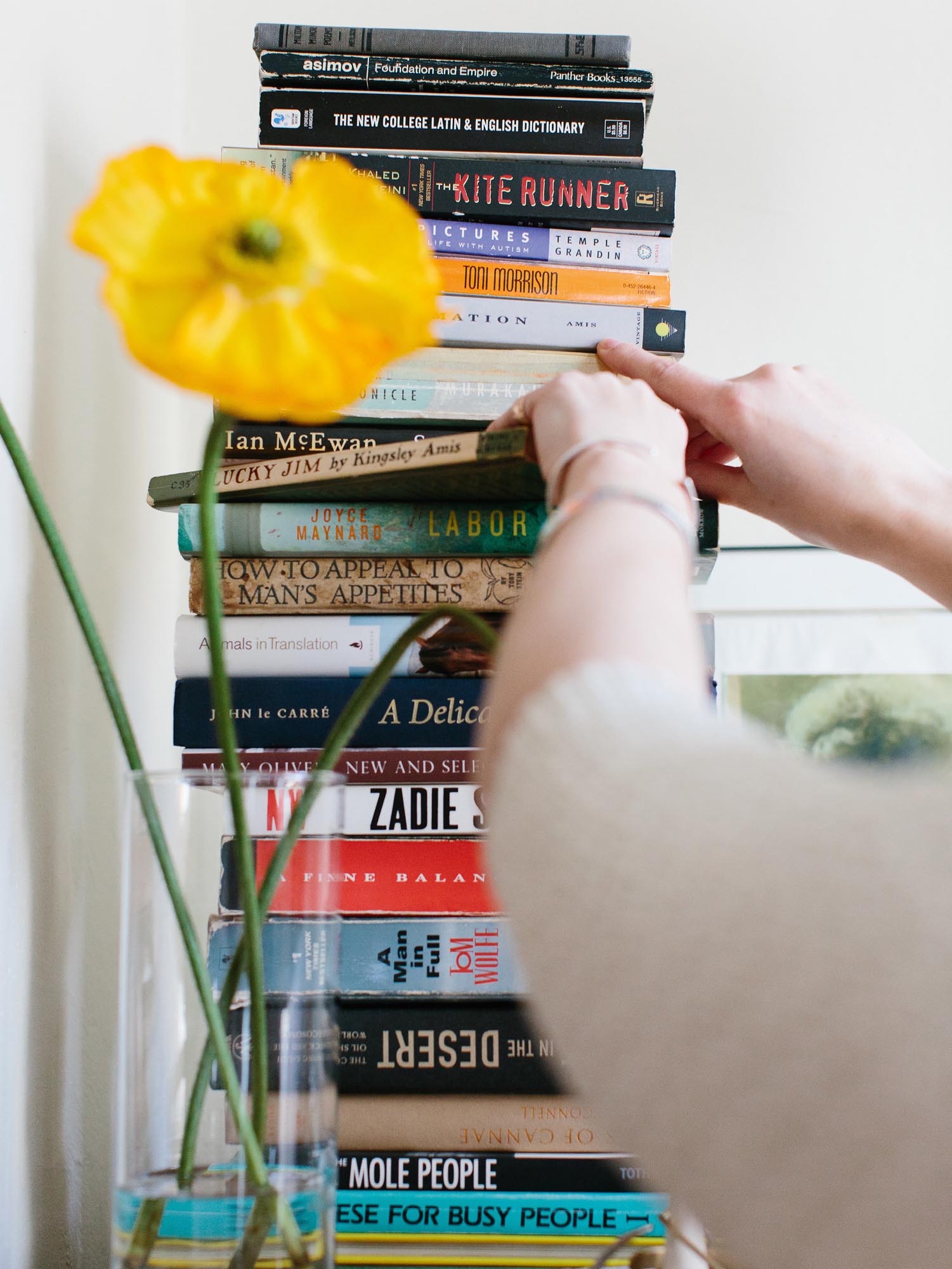
We’ve all been there. The moment you are staring at your bookshelves and your eyes land on that book—the one that you can’t believe still sits on your shelf. You should have given it away ages ago. In Elizabeth’s case it was Little Girl Lost by Drew Barrymore.
No offense to Drew Barrymore, but how had this book traveled with Elizabeth—through college and all the moves post-college—and ended up here, on the living room bookshelf no less, almost three decades later?
Your own discoveries may not be quite as stuck in time as Elizabeth’s, but there will be opportunities to cull your books, as you reflect on who and where you are now.
You’re ready to refine your collection of books, but where do you start? Full bookshelves can feel overwhelming. Now is the time to keep it simple as this process is both physical and emotional. Start with one shelf and take baby steps as you work your way through all your books.

Credit: Christine Han. Features the home of Helen Dealtry.
Let a sense of ease dictate this phase. When you select the books that may no longer make sense in your home, a sense of space and lightness should come with the process.
Don’t worry about placement at this point, simply move through your books and decide which ones still resonate.
Perhaps you will come across a beloved paperback that should be upgraded to a hardcover or first edition. You might find a hardcover that no longer reflects your story and should be donated. Sometimes you’ll discover a series of books that you’d forgotten about which feel intrinsically linked to who you are. Some decisions will be made quickly, some will take more time and soul-searching.
As you scan your titles and remove the books that don’t belong, we aren’t going to ask you to hold each one and see whether it sparks joy, as Marie Kondo asks. You could if you want to, but our relationship with books is usually a bit more complicated. You may feel one way about the content, but have a different attachment to the binding, the context, where you received it, and what part of your story this books reflects.
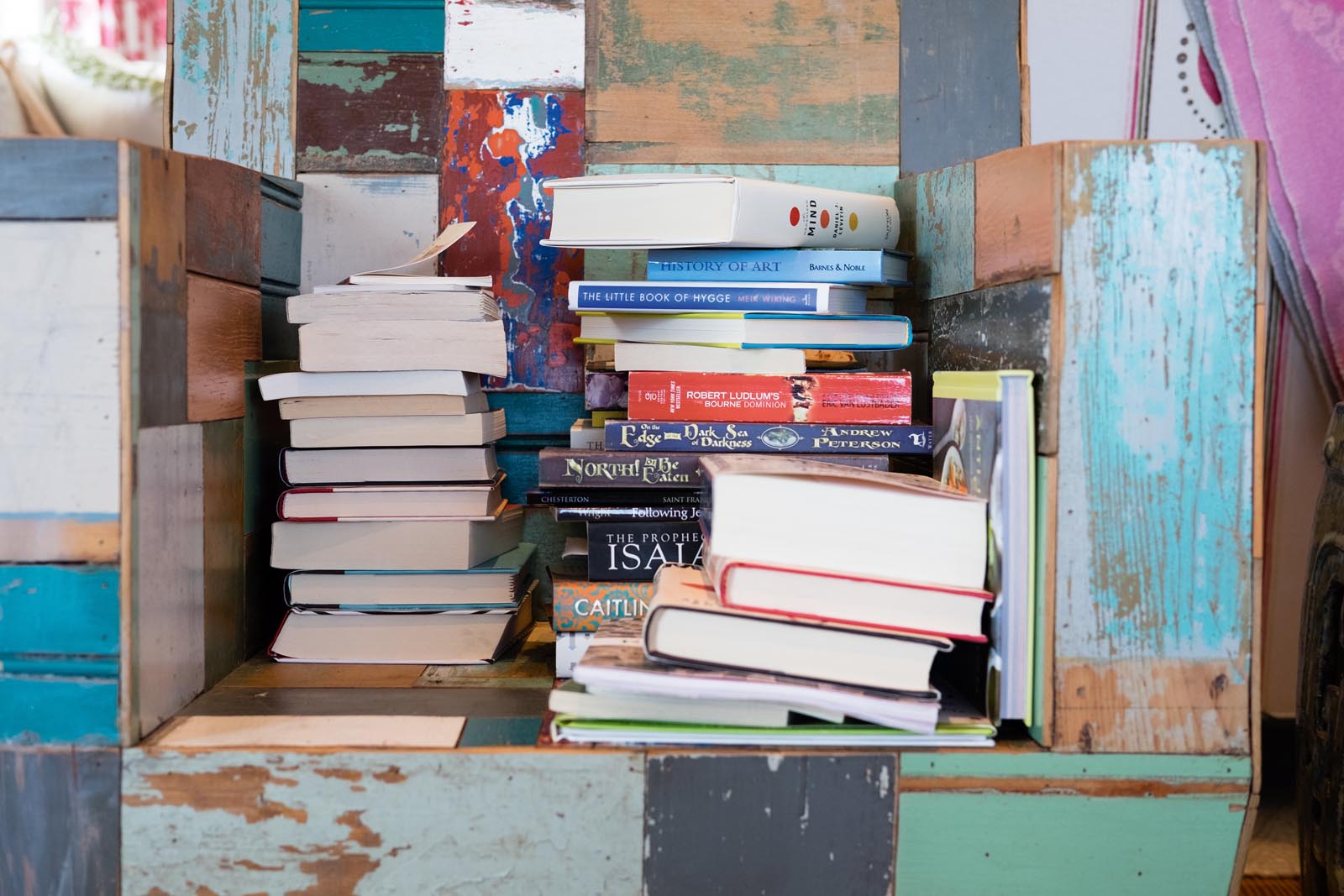
Credit: Christine Lane.
“A book is not only a friend, it makes friends for you. When you have possessed a book with mind and spirit, you are enriched. But when you pass it on you are enriched threefold.”
—Henry Miller1
Here are three questions to ask yourself as you decide what stays and what goes:
Does the book belong in my life at all? Take away what should be removed. These books (we all have them) should find a new home. Make a stack of books to donate, trade, or sell. See later in this chapter for ideas on where to take them.
Does the book belong in my life, but just not right here? Make a stack of these books and perhaps put a sticky note on them to define where in the house they should go—your office, the kitchen, or maybe just in a box in the garage.
Does the book belong in my life, but just not this edition? There are a lot of stories that we want to have around, but as we move and our design sensibilities evolve, we may want nicer things. An example of this might be your college paperback edition of I Know Why the Caged Bird Sings. You adored Maya Angelou, but there must be a nice hardcover edition of the book you loved so much that would look better in your living room. Set these books aside in a separate stack and label them: “To be upgraded!”


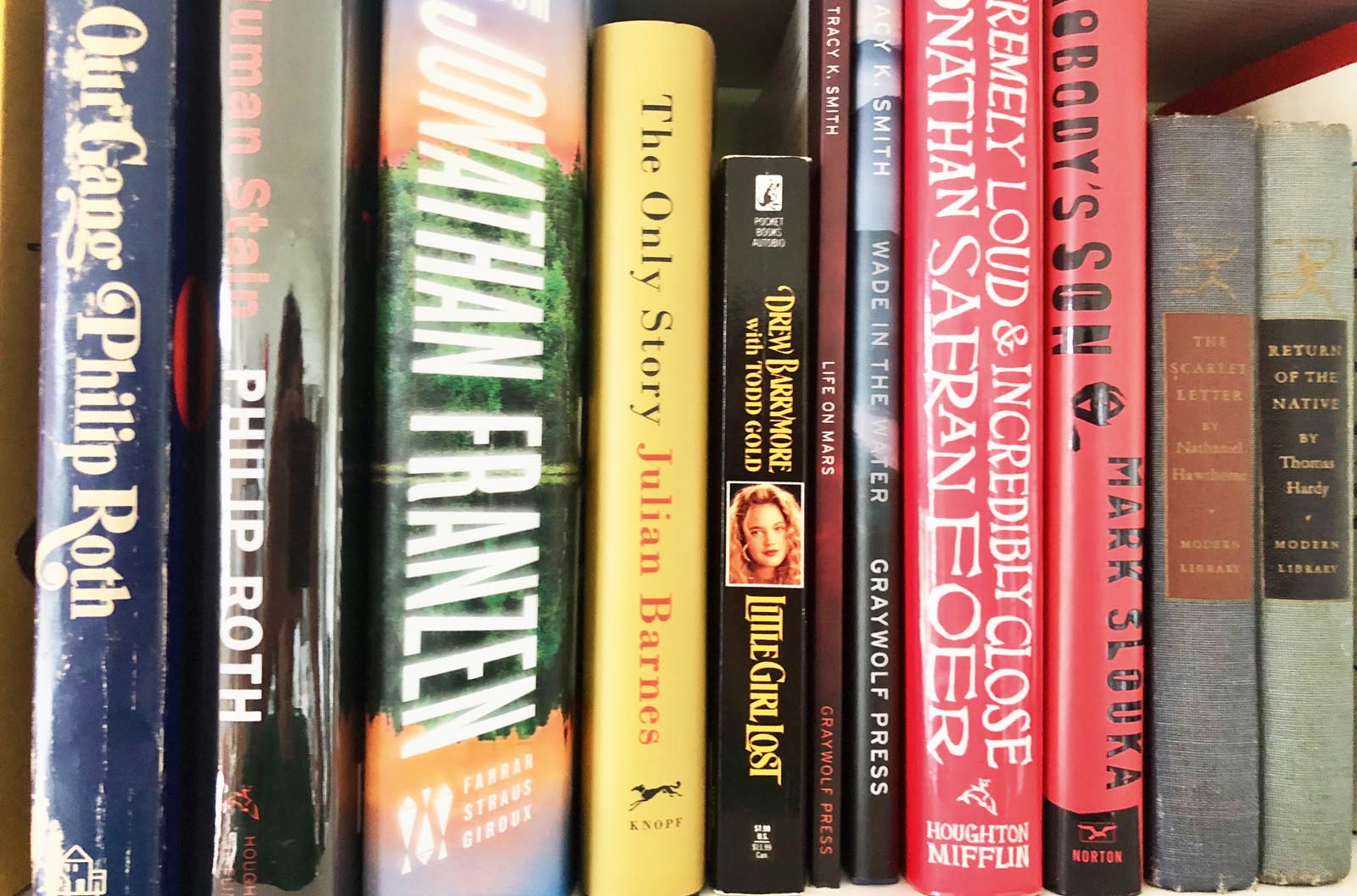
Once you’ve gotten these easy picks—the low hanging fruit—out the door, take another pass. This culling will be a bit harder, as it will take some time to discern why you may be holding on to a particular title.
When you ask yourself the “why” behind each book, you will start to see your collection with fresh eyes. Notice the books you bought in college, or during a spiritual quest in your twenties, or those how-to books about home renovation that fill an entire corner of your shelves. Take stock of the poetry books, knitting books, book club books . . . all the Tom Robbins books purchased to impress a partner. These may be experiences you no longer wish to revisit.
Recognize who you are right now and also where you are headed. Are these titles still relevant? If they’re not, send them into the world where they will have new meaning for someone else. They have already served their purpose for you. Set them free and move on.
When you feel a certain pull or repulsion, ask yourself:
“Is this part of my story or is it ancient history?”
“Am I truly reflected in this stack of college-required reading: the Kafka and the Nietzsche?”
“Are these ten recent presidential biographies that I read and enjoyed a more accurate reflection of who I am in this moment?”
Trust the answer.
Some books may still be a part of your story, yet they too may not belong on the shelves. Thatcher has books that fit this category and so he keeps them, just not in the bookcase. Instead, he stores them in file boxes. These books may be ones he will give away at a later date or they will find their way back on the shelves. Their fate is not yet written in stone and that’s OK.
Once you have a few boxes filled with potential donations, check each book again to make sure that it is fit to donate. If any of the books are dirty, moldy, burnt, water damaged, missing covers or pages, have damaged bindings, or excessive writing, markings, or highlighting, please responsibly recycle them.
Boulder, Colorado, is fortunate to have a place called the Eco-Cycle Center for Hard-to-Recycle Materials which recycles books (and lots of other items). A few phone calls around your local community will hopefully yield ideas on where to take your books. Perhaps the local library can advise on who recycles books.
Here’s a good rule of thumb: If the books aren’t in good enough condition to give to a friend, recycle them.
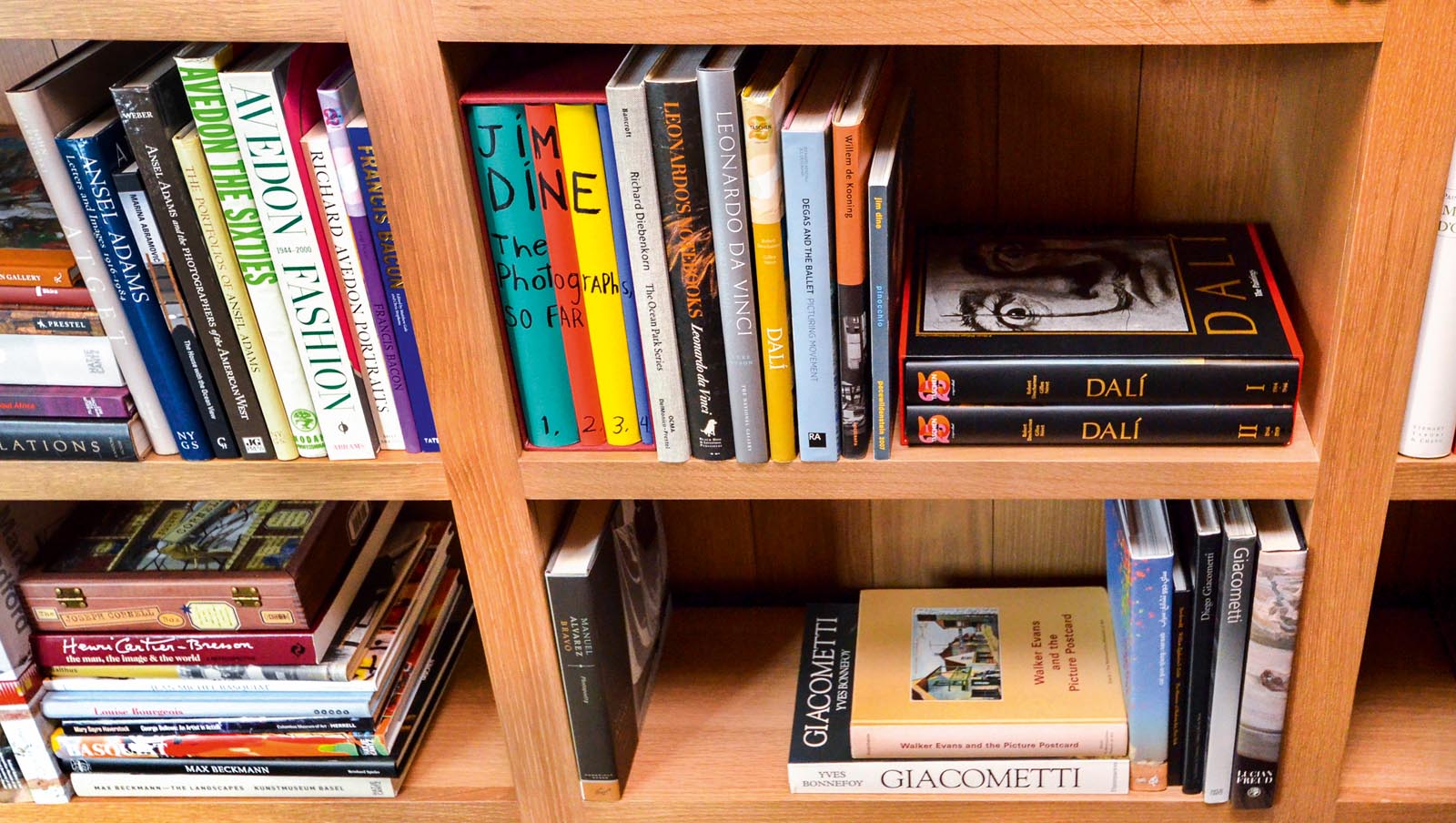
As the quantities of books on your shelves get smaller, you will probably feel a new energy that the shelves now bring to the space and it will become easier to discern what stays and goes. Let the shelves speak to you and follow your intuition.
After you’ve determined which books no longer belong in the room you are working on, it’s time to take another look at what remains and confirm you actually have what belongs. Maybe you do this after taking a lunch break or on an entirely different day in order to see things with fresh eyes.
Going through your books, parting ways with some of them and soul-searching for the meaning of the others, can be physically and emotionally draining. If that happens, remember it’s a healthy process to go through. Roll through it with grace. Books are meaningful. They are objects that may have been with you a long time and you may have deep, somatic memories of where you have been together.
Some time and space may be required to go through all your books. It’s OK to take a break and not tackle it all at once. But don’t delay too long. The risk is that if you never go through your books—absorbing their energy and revitalizing your connection to them—you may get to the point where you no longer have the energy to do so in this lifetime.
Don’t let your books become like Charles Foster Kane’s sled in Citizen Kane! The cinematic masterpiece by Orson Welles opens with the mysterious last word of the dying wealthy newspaper magnate, “Rosebud.” Rosebud, we discover as the story unfolds, is the name of Kane’s beloved sled, incinerated by Kane’s household staff after his death. They are unaware of the meaning it had in his life. Kane longed for the innocence of childhood that the sled represented, but he died without ever sharing the personal meaning the object held for him.
Your books are part of your story and you are the one who knows your story best. You should recharge the story you want to tell on your shelves and make it known to the world while you can still enjoy it and while you have the vitality to do so!
If Kane had just taken the time to place the snow globe he held as he died on a bookshelf earlier in life, next to his favorite childhood books and perhaps with the Rosebud sled leaning against the wall, we would argue that his life would have been much happier and more fulfilling. He would have understood that these objects, and the memories they were attached to, held meaning. Perhaps he could have placed them in context in a way that others could have understood him more fully. There is power in all forms of storytelling and we do believe that books are visual objects of storytelling.
Once you have gone through your books and figured out what to part ways with (and perhaps detoured to contemplate your own mortality without becoming immobilized!), it’s time to think more deeply about why you are keeping what you are keeping.
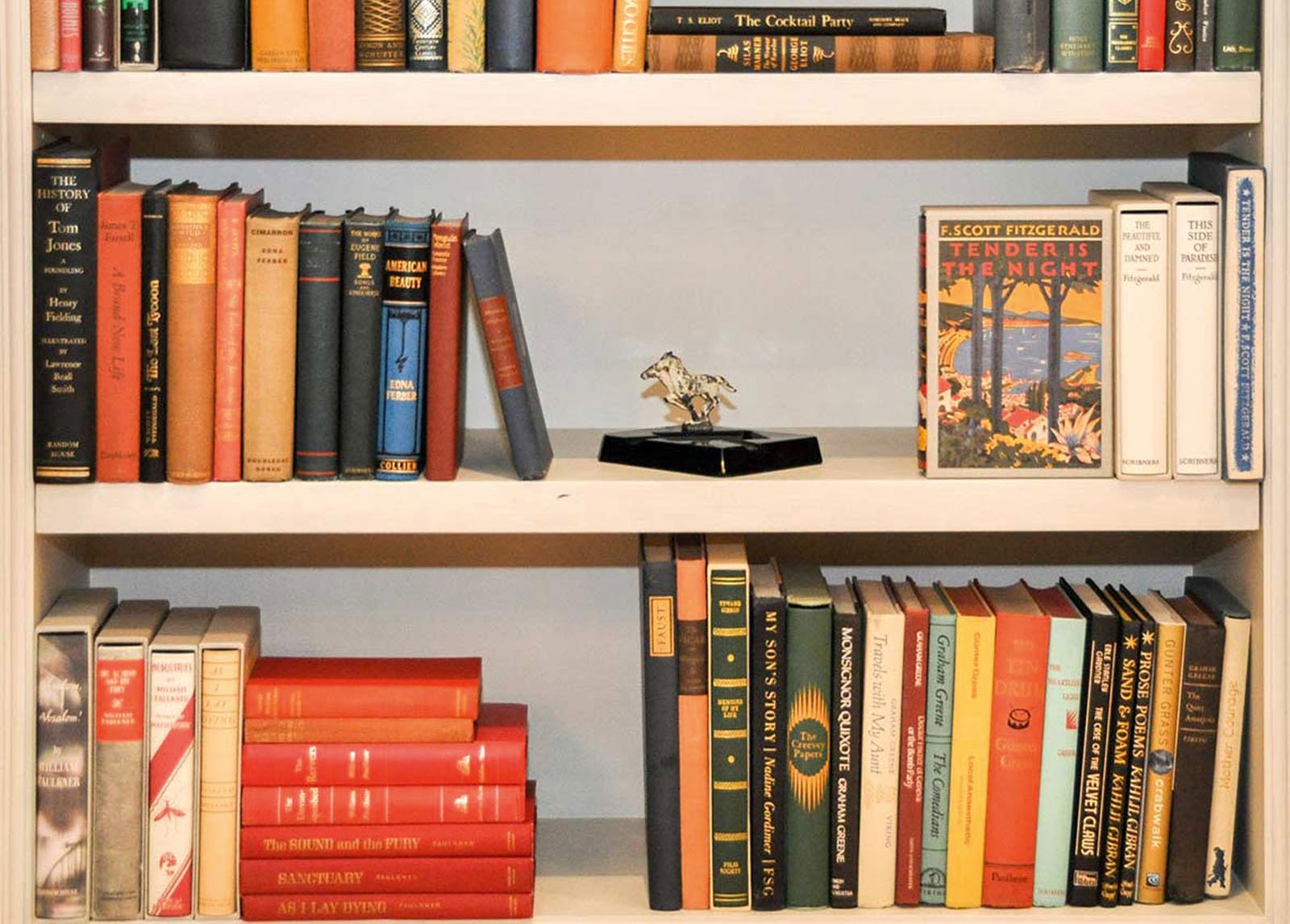
To read them one day! If you hope to read the book one day, definitely keep it. It’s fine to be aspirational; no one else will keep score on what you have actually read. It’s great to dream and hope that one day you will have the time to read all your books.
To tell your story. Some people give away every book they’ve read explaining, “What’s the point in keeping a book after I’ve read it if I’m not going to read it again? It’s someone else’s turn to read my copy now.” If that works for you, then only keep books on your shelves that you haven’t read yet. However you can probably understand that the books that you haven’t yet read only tell the story of your future, they don’t say much about where you’ve been and what made you who you are today.
To make people think you’ve read the book. This one may be hard or easy for you to admit, but we don’t think there is any shame in it. Sometimes we hold on to books because they represent our aspirational selves, supporting the perception of how well read or intelligent we are. They are certainly the books our ideal selves would read, but in reality—if we had to admit it—we probably never will. We would argue that you should still have these books around. They are part of your story and who you want to be.
To inspire someone else in your household to read those books one day. Perhaps it’s your kids or maybe your guests. Keeping books for the benefit of others is thoughtful and generous. At the very least, anyone who comes into your home will know that these are important books and will be exposed to the subjects and authors that you feel are important. Whether they actually read Charles Dickens or just know that he existed and was a prolific writer after seeing your books: mission accomplished!
To retain sentimental value. People keep a lot of things that have sentimental value: photographs, concert ticket stubs, travel knickknacks. Books, we would argue, have deeper meaning as sentimental objects. That childhood book of your grandmother’s—she may have spent hours and hours with it and perhaps it was instrumental in her education. That is much more impactful than a photograph or a ceramic figurine. You are holding in your hands what she held in her hands. This brings her into the present and into your home, taking up space on your shelves and acknowledging the thread of family and history that unites you. Books can do that in ways that other objects cannot.
To prove to someone that you still have it. This may be a book that you are otherwise ready to give away, but because a friend gifted it, you want to make sure you have it on display when they visit. This I’ve found happens a lot with coffee table books. It can be a little frustrating when the biggest books are the ones you want to get rid of the most, yet, you are beholden to keeping them. This dilemma is probably better suited to “Dear Abby” than to our guidance here. You will know if it’s time to part ways with a book if you notice it frequently and agonize over the need to keep it to stay friends with the person who gifted it. You should probably donate it to a good organization and then tell your friend you spilled coffee all over it and had to recycle it!
To make your shelves look good. There is no shame in keeping books just because they look good. It’s great if your books all belong on your shelves for multiple reasons, but if it’s only one reason and that reason is that it looks good, that is good enough for us. When you need room for new acquisitions, maybe cull some books that only look good and aren’t serving other purposes.
Here are a few scenarios you might come across as you cull your books:
“I loved this story at one time and could give it away, but what about the kids? I should keep it. Maybe they will read it and love it like I did!”
“I haven’t gone to a yoga class in years, let alone looked at these yoga books. But my partner has talked about going to a class recently. Maybe I should keep these books just in case.”
“These are my partner’s books but I hate how they look and how they remind me of her life before we got together. My books are so much nicer!”
“I know this book doesn’t serve any purpose for me now. But what if it does later and I regret giving it away? It will be wasteful if I just have to purchase the book again. I should keep it.”
“These are my kids’ books. They think they are baby books now, but will they want them when they grow up as a way to reconnect with their childhood?”
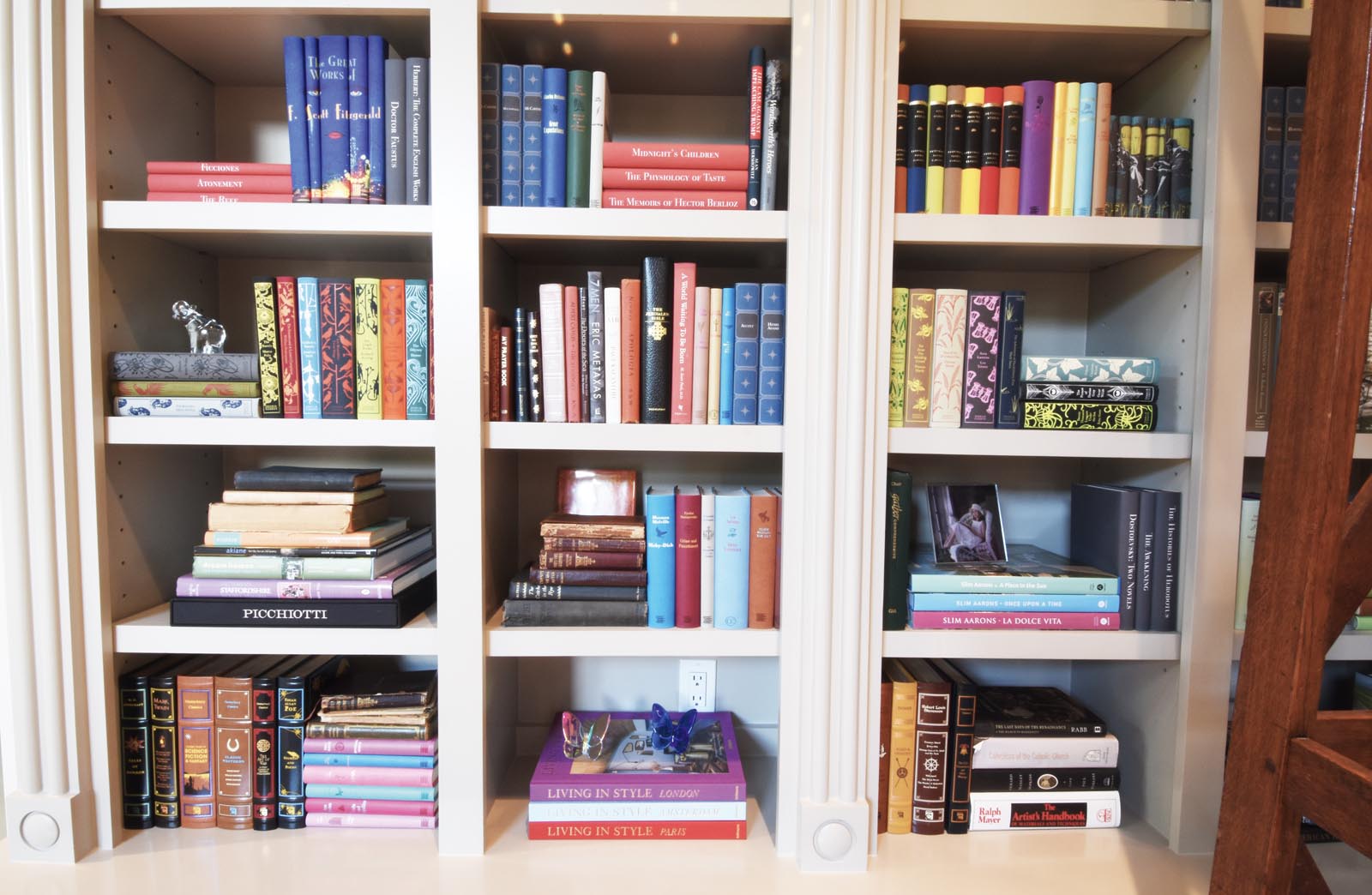
The previous scenarios reflect potentially valid reasons to keep books or at least have family discussions about whether books stay or go. Every family and household dynamic is different.
Perhaps you can initiate a discussion with your family about the books. You may find a resounding answer as to whether your kids or partner wants you to keep a certain book.
Or maybe you should just do the work and be decisive. Cull the shelves and put some boxes in the garage for a few months to see if anyone misses their books. If you get a question about where someone’s favorite book went, you can bring it back and then talk about donating the rest.
You can also create a limbo area to store the “maybe someday” books and mark them with a note: “To be given away on [date]. Take what you want before then, otherwise they will be gone!”
When reviewing existing client libraries, Thatcher has found a common trend: the binge purchase. The collection of books that reflect a very distinct time: that day you discovered a certain parenting expert or the keto diet and bought all the books you could find on Amazon. You may still be into these subjects, but you don’t need an entire collection of them. Keep one title that serves as the best reflection or touchpoint and part with the rest.
Like the cards in a card catalog, one book can serve as a symbolic sign of the whole. (The photo above is a part of Elizabeth’s “wanting to be a faster runner” story.) She has since realized she’s not a fast runner, and so now has just one title to remind her it’s still a good practice to want to improve.
For your rare books, or titles with value, seek out a trusted rare book dealer or auction house. They can help you discern which books have value and share with you the appropriate next steps.
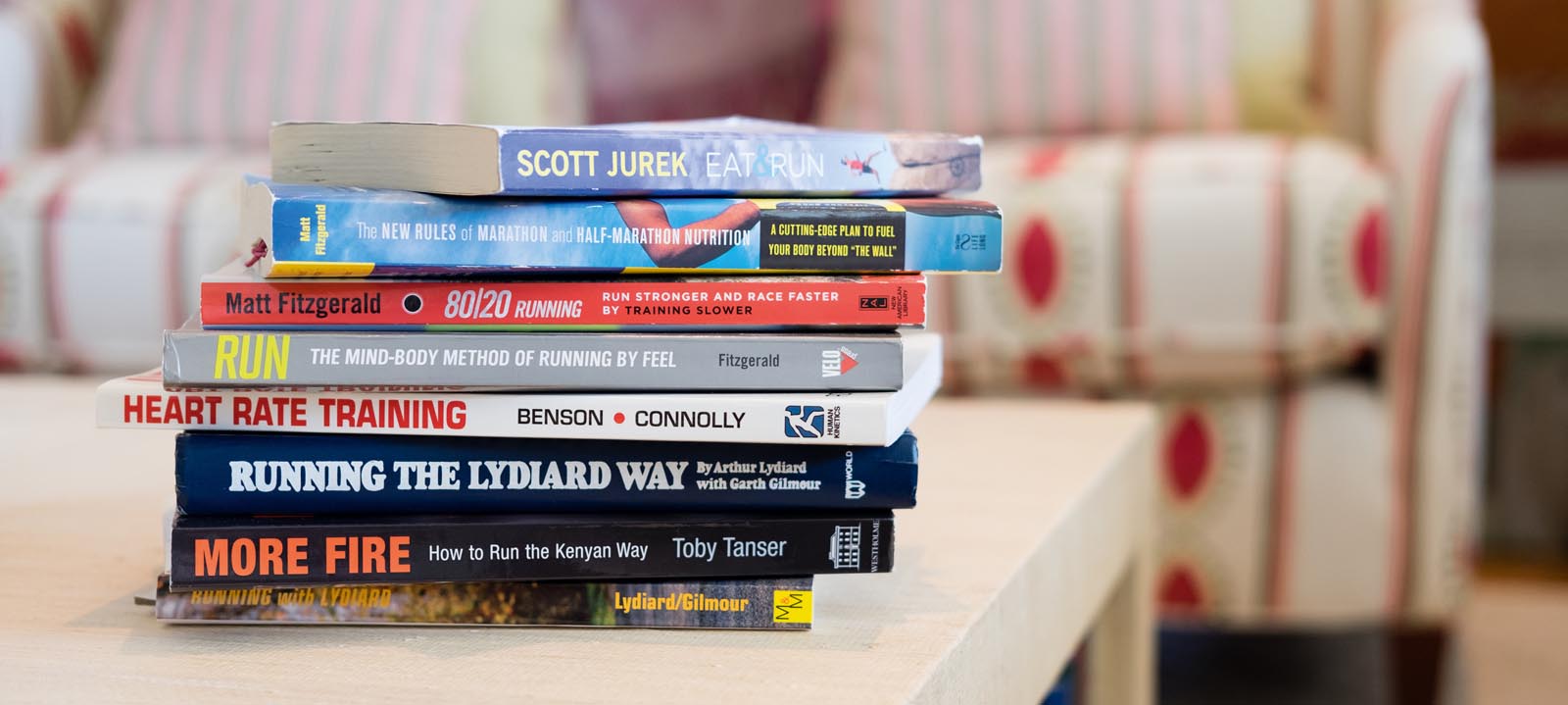
Credit: Christine Lane.
There are countless ways to help your books find new life in another’s home. Here are a few ideas:
 Host an estate or yard sale. Price the books to sell—usually around one or two dollars per book.
Host an estate or yard sale. Price the books to sell—usually around one or two dollars per book.
 Trade in gently-used books to your local bookstore. Usually you will receive credit toward a new purchase. If they accept twenty of your books and give you enough credit to buy one beautiful coffee table book that you love, consider it a victory!
Trade in gently-used books to your local bookstore. Usually you will receive credit toward a new purchase. If they accept twenty of your books and give you enough credit to buy one beautiful coffee table book that you love, consider it a victory!
 Sell your books online. Amazon or eBay are the most accessible to work with for individuals. Abebooks.com is also a great site to look up values on rare books and first editions. Be patient with online sales. There can be a lot of competition but if you have books in nice condition, they should sell if priced right.
Sell your books online. Amazon or eBay are the most accessible to work with for individuals. Abebooks.com is also a great site to look up values on rare books and first editions. Be patient with online sales. There can be a lot of competition but if you have books in nice condition, they should sell if priced right.
 Give away books to your local library. They will sell them to raise money at their next library sale (which is also a great place to shop for more books, by the way!). This is usually the easiest way to part with a lot of books.
Give away books to your local library. They will sell them to raise money at their next library sale (which is also a great place to shop for more books, by the way!). This is usually the easiest way to part with a lot of books.
 Give books to nonprofits or schools. They will let you know if they need books for their shelves or if they can sell them in their thrift store, upcoming book or yard sale, or in another way to raise money for a cause you support.
Give books to nonprofits or schools. They will let you know if they need books for their shelves or if they can sell them in their thrift store, upcoming book or yard sale, or in another way to raise money for a cause you support.
 Responsibly recycle your books. This may take a little more work to figure out who recycles books, but if the books will never sell (perhaps due to damage), it’s far better to recycle them than for them to end up in a landfill.
Responsibly recycle your books. This may take a little more work to figure out who recycles books, but if the books will never sell (perhaps due to damage), it’s far better to recycle them than for them to end up in a landfill.
 Construct a Little Free Library on your property or add your books to one in your neighborhood.
Construct a Little Free Library on your property or add your books to one in your neighborhood.
 Some places like doctors’ waiting rooms, nursing homes, and preschools accept donations of age-appropriate
books.
Some places like doctors’ waiting rooms, nursing homes, and preschools accept donations of age-appropriate
books.
 Check out BookCrossing.com and create a game and sense of community around clearing your books.
Check out BookCrossing.com and create a game and sense of community around clearing your books.
“We don’t need to have just one favorite. We keep adding favorites. Our favorite book is always the book that speaks most directly to us at a particular stage in our lives. And our lives change. We have other favorites that give us what we most need at that particular time. But we never lose the old favorites. They’re always with us. We just sort of accumulate them.”
—Lloyd Alexander2
With every book purge can come a season of book mourning when you realize you gave a book away too soon. The great thing about books is that you can usually find another copy. One way in which the internet serves us is that most used and rare book dealers publish their catalogs online. However, there may be a few that you part with that are irreplaceable.
In the early days of his bookselling years, Thatcher kept a lot more books for his personal collection than he does now. Having been in the trade for more than seventeen years, he knows what he is likely to see again and which books he shouldn’t miss an opportunity to acquire. Books are fluid; they should come and go like a river flowing in and out of your life, enriching and serving as signposts to tell your story.
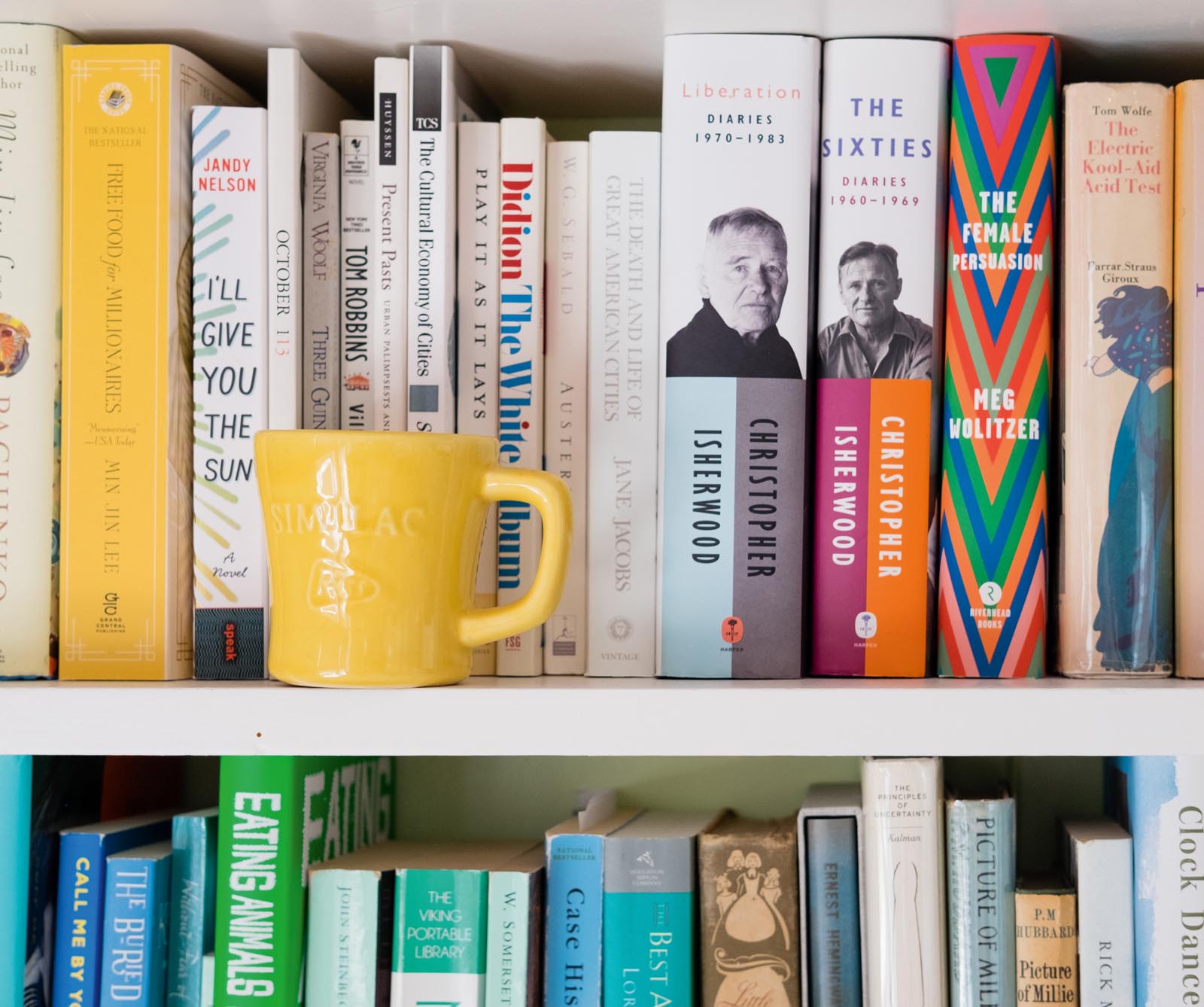
Credit: Christine Lane.
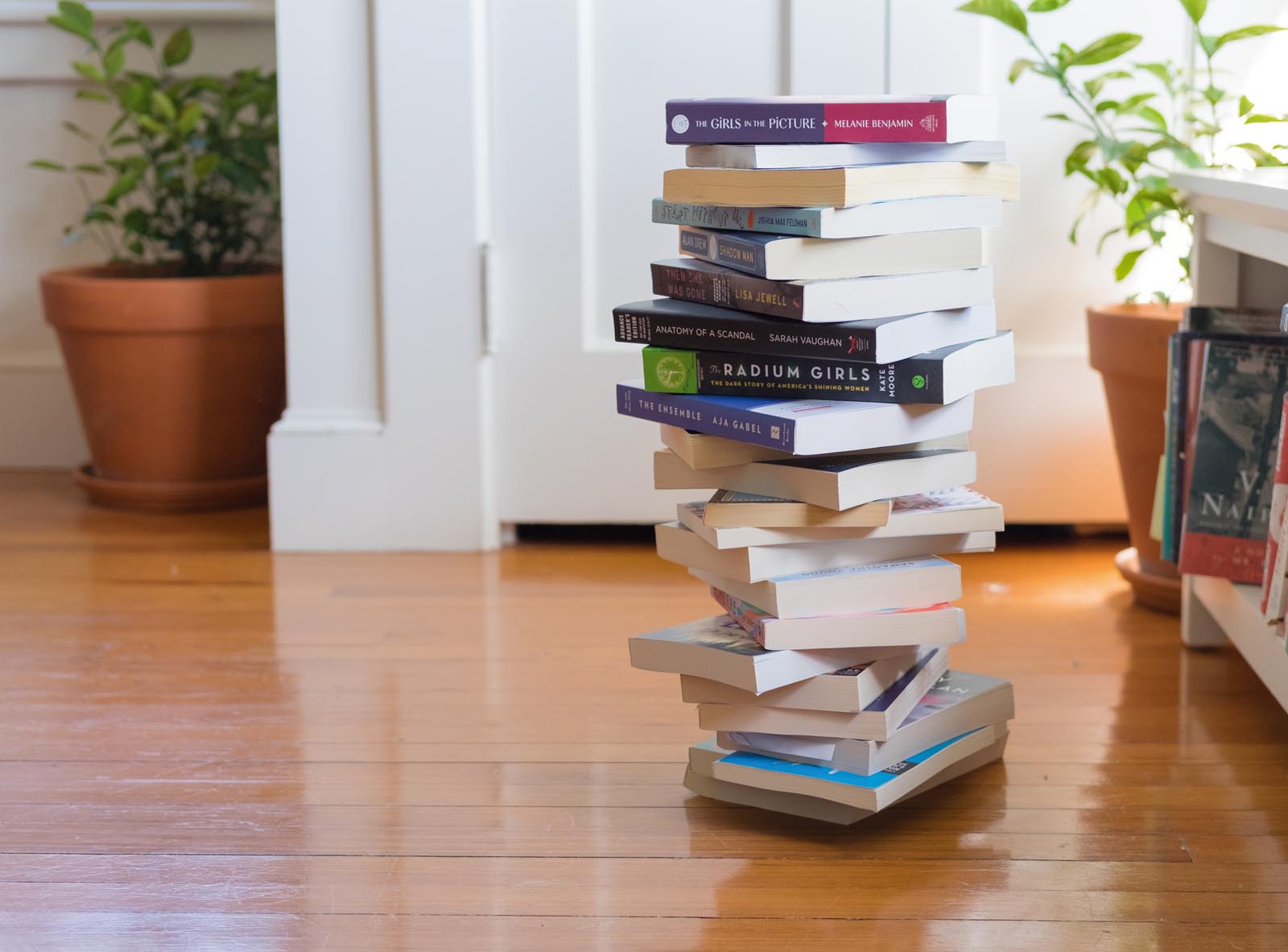
Credit: Christine Lane.